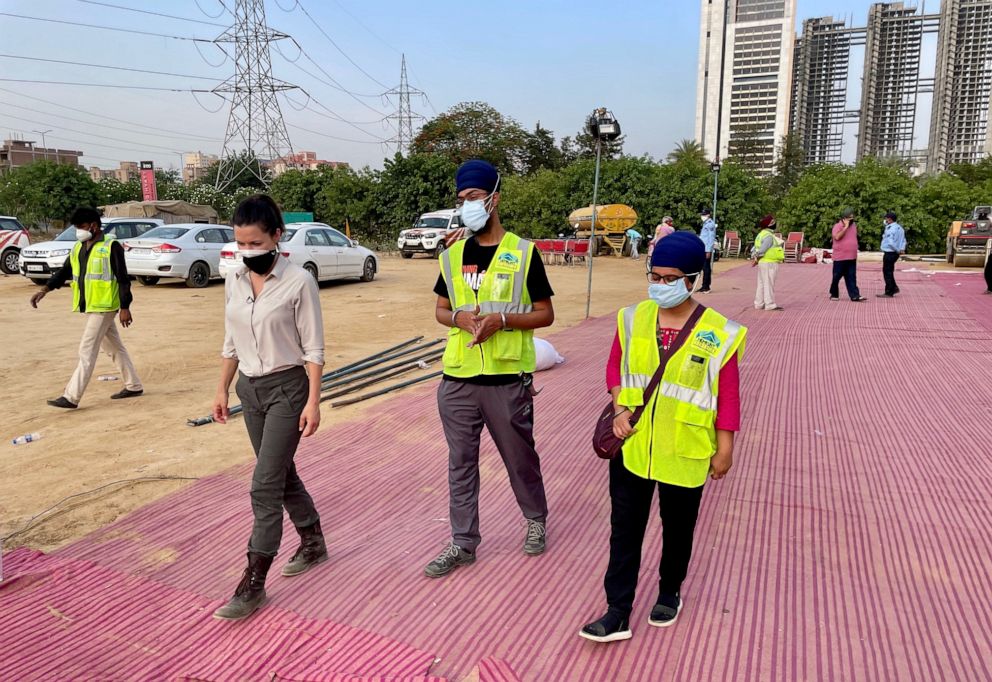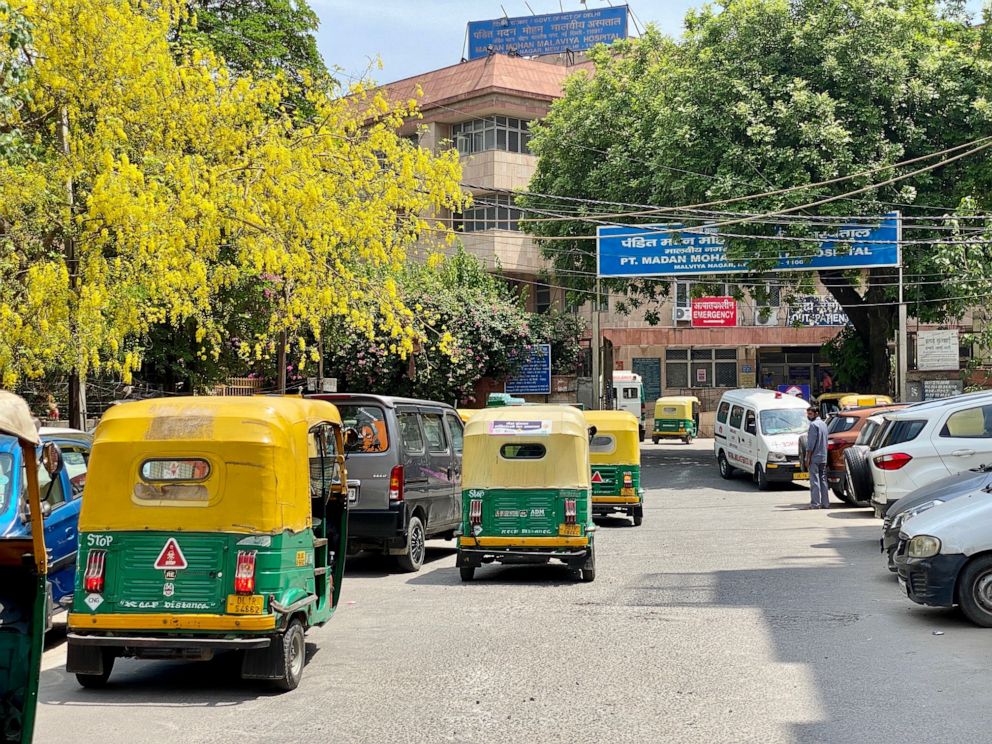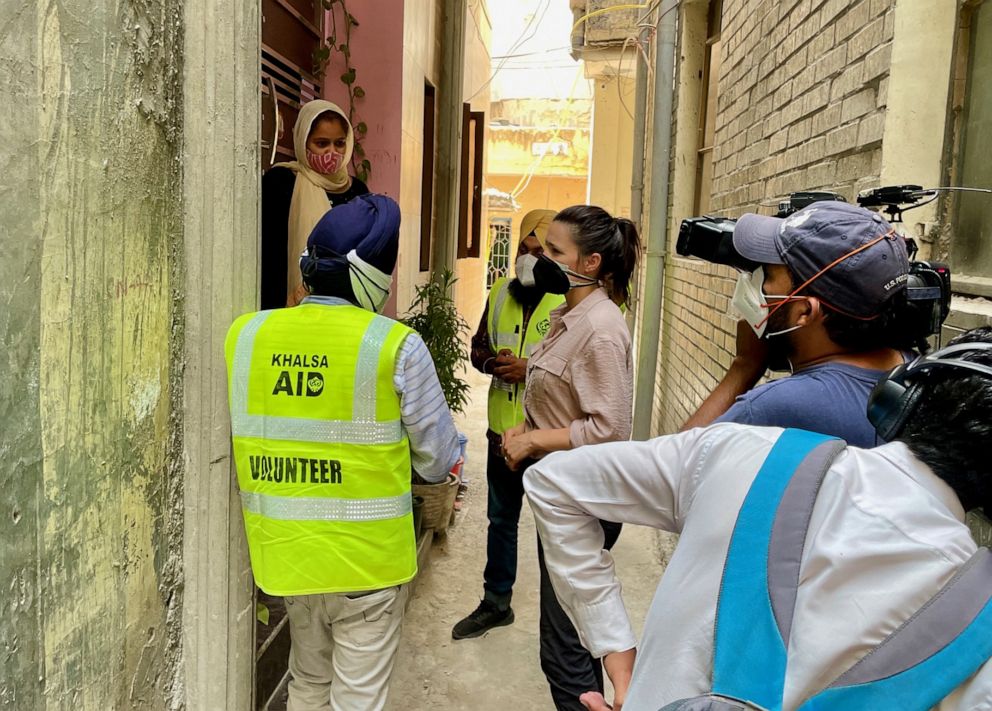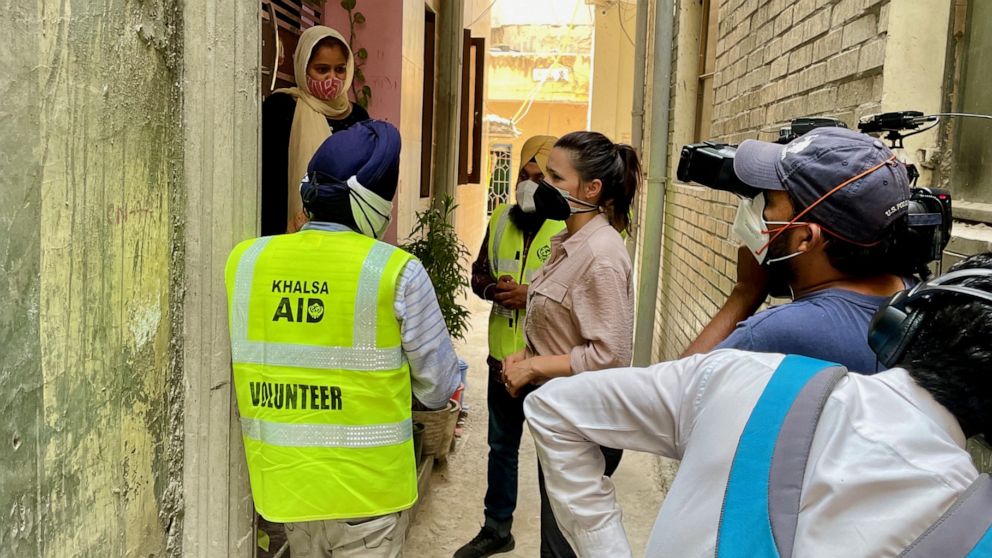Amid India COVID-19 crisis, remembering the people: Reporter's Notebook
NEW DELHI -- On the ground in India, COVID-19 is everywhere. It's in the fear that keeps people trapped indoors, a vacant silence falling over the normally bustling city of New Delhi. It's in the chaos outside of hospitals, where we see family members desperately searching for an intensive care unit bed or oxygen for their loved ones. And it's even in our team, where we had more than half a dozen people drop out after they either tested positive, they no longer felt safe leaving their homes or, sadly, because a loved one was in critical care.
Every day on the ground was dominated by precautions. Our team from America was fully vaccinated. We wore double masks so tight to our faces that we have the marks to prove it, and we only filmed outside.
It was easy to remain vigilant as we saw India’s terrifying reality firsthand. The long lines at crematoriums that burned throughout the night. People gasping for breath in makeshift clinics on the side of the road. Doctors who told us that at one point the hospitals got so crowded there wasn’t even any room on the floor for new patients. But what I’ll remember from our time on the ground in India isn’t just the horrors -- I’ll remember the regular people who stepped in when their health care system failed them.

Ishaan Singh and Paramjot Kaur, a young couple from Punjab. She is a software engineer for IBM, and he's an expert in cybersecurity. When the crisis hit, they dropped everything and moved to New Delhi with only a change of clothes and their fierce dedication to serve others. At first, they slept on the floor of the makeshift clinic where they were volunteering.
In just three days, they and their team at the Hemkunt Foundation were able to convert what was normally a wedding tent into a large field hospital in the middle of a dirt field outside of Delhi, where they’ve helped thousands of people. We met one young woman outside the clinic who said the hospital told her that she needed to find her own oxygen for her father. As volunteers loaded two canisters into her car, she told us without this clinic, she wouldn’t be able to keep her father alive.
Puneet Singh and Amarpreet Singh, two volunteers at Khalsa Aid. When people are turned away from hospitals, they step in to get them the urgent, lifesaving care they need, free of charge. We drove along with them as they delivered oxygen concentrators to homes all over the city. The look of relief in people’s eyes when they saw them outside their front doors is something I will never forget.

Sarabjit Singh. We met him as he was finishing up the night shift at a makeshift clinic in New Delhi that had been set up by a local house of worship. He’s not a medical professional, but he’s spent the last three weeks helping patients as they lay on cots in the 100-degree heat on the side of the road.
He told us he brought his grandmother here when she needed oxygen, and he stayed on to help. He hasn’t been home -- or seen his 4-month-old daughter -- since. At the peak, he said he watched nearly a dozen people die every day. But every day, he also helped up to 600 people receive life-saving oxygen.
Dr. Sumit Ray and Dr. Madhu Handa, two doctors who have been fighting on the front lines of this crisis. Ray said his staff is emotionally scarred, and it pains him to think about all the lives that were lost simply because his team couldn’t access basic medical supplies. Despite the constant onslaught of this outbreak, the doctors kept showing up, often on just a few hours of sleep a night. They were there, doing whatever they could with whatever they had to save as many lives as possible.

As India suffers through this deadly second wave, these are the people I will remember. The people who are the heart and soul of a country that is getting battered but -- thanks to their efforts -- will not be broken.
Even in the middle of despair, it was these people who showed us that India is still India. We still saw stray cows in the middle of the road blocking traffic, smelled fragrant spices getting cooked up for takeout, and felt the warm generosity of a group of people who, despite living through some of the worst days of their lives, always welcomed people with gracious offers to help.
ABC News' Brandon Baur contributed to this report.




